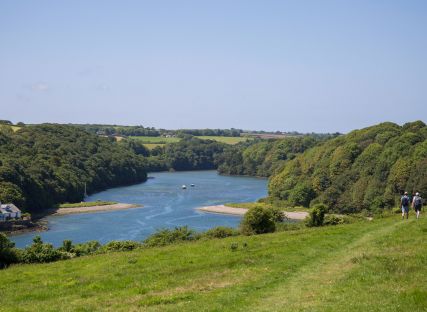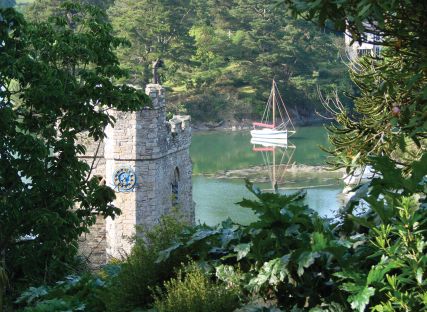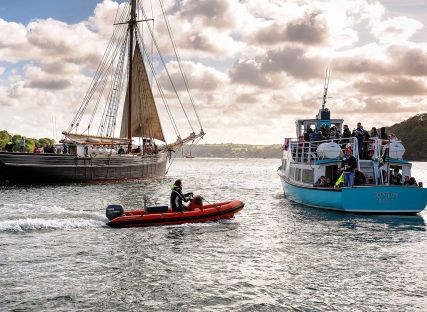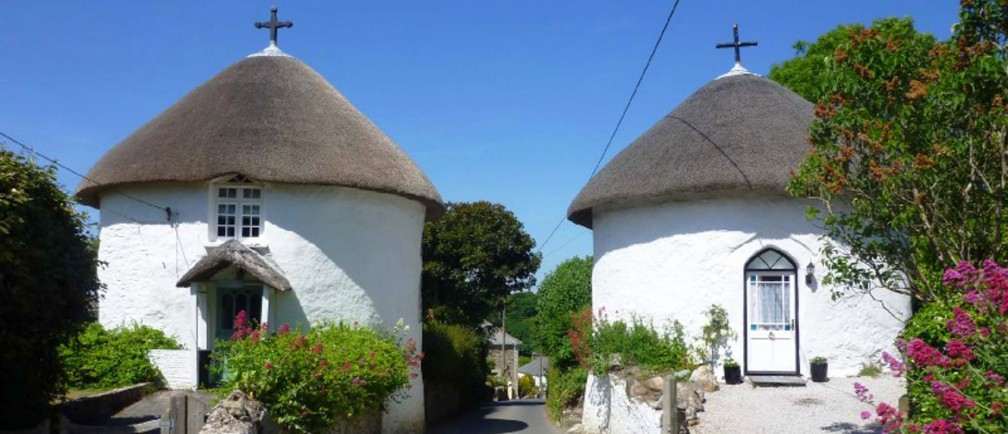
Veryan
OVERVIEW
Veryan is an idyllic and postcard-pretty village just a mile up the lane from The Nare. Despite its size, this village is full of charm and historical features, each with its own story to tell. The village name was derived from St Severian (previously known as St Symphorian) who was a French martyr, and can be traced back as far as 1086 AD, where it was recorded in the Domesday Book, as the manor of Elerchi.
VERYAN'S ROUND HOUSES
Veryan has five roundhouse cottages each with a thatched roof and topped by a cross. Dating back to the nineteenth century, the cottages were built by the Reverend of Veryan church, Jeremiah Trist, for each of his daughters.
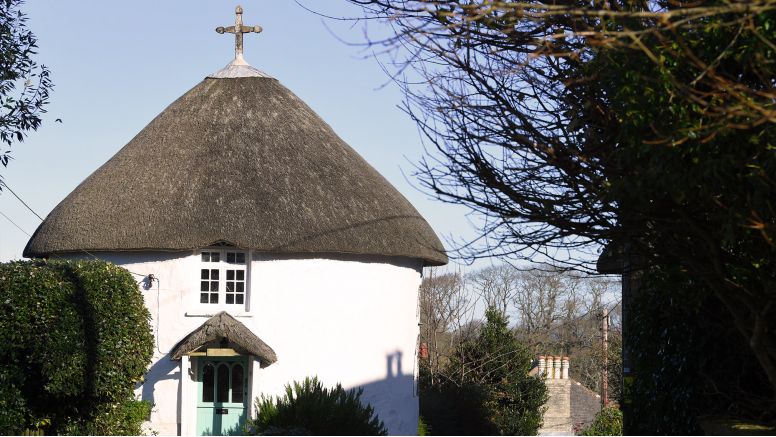
There are two at each entrance (end) of the village and one hidden behind the village school. Legend has it they were constructed without any corners, so the devil couldn’t hide in them! These cottages and the many other thatched cottages across Veryan, give the real sense of classic English charm, which one might usually associate with the Cotswolds and other regions of middle England.
VERYAN CHURCH
Veryan church is a member of Cornwall’s Historic Churches and a typical example of the many historic churches that adorn the Cornish landscape. Although the church has some artefacts dating back to the Norman period (1066-1154), it is believed the church was constructed in the thirteenth century. Many of the churches on the Roseland date back to a similar time period. A visit to one or more of these churches gives a real insight in to the history of this region.
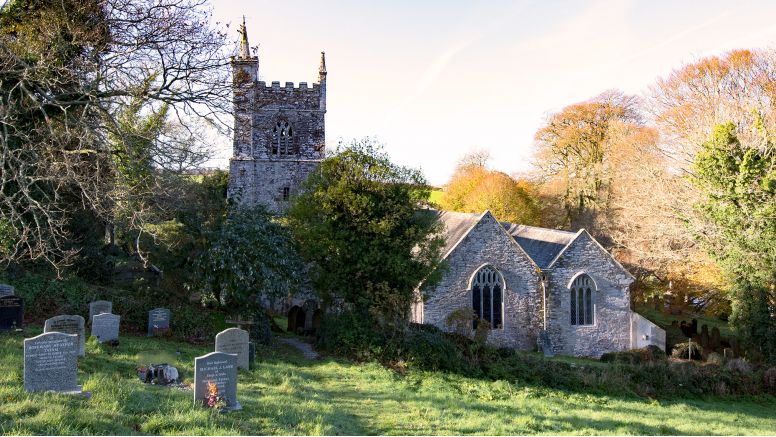
Veryan church also has what is believed to be the longest grave in the UK. On 1st February 1914 the Hera, a German cargo ship, was shipwrecked at Gull rock, a quarter mile off Nare Head. The bodies of fifteen of the nineteen sailors who died that night are buried head to foot in Veryan graveyard. Read more about the Hera disaster here.
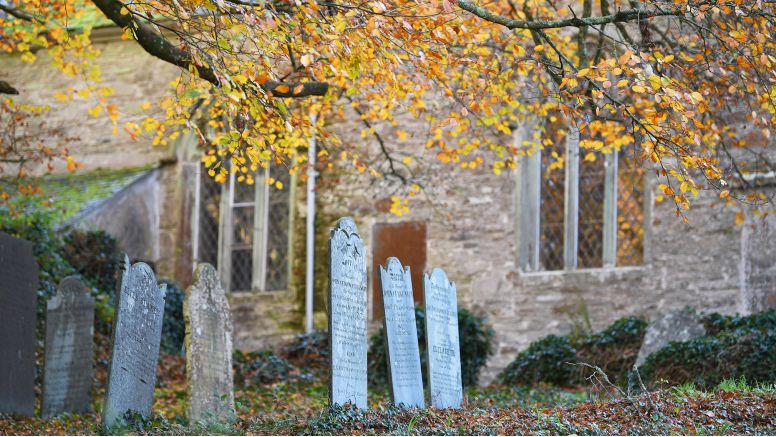
VERYAN HOLY WELL & POND
Opposite the church in Veryan lies the Well of St Symphorian. Like the church, it also dates back to the thirteenth century. Restored in 1912, the well is now Grade 2 listed and a good example of the historical artefacts that exist across Cornwall. Opposite the well alongside the church grounds is the picturesque pond in Veryan, with its quaint and leafy green surroundings.
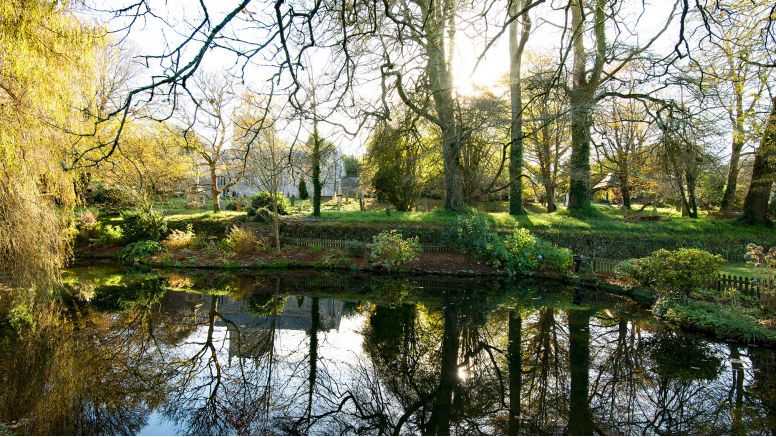
MELINSEY MILL
Just outside of Veryan, is Melinsey Mill, a working water mill that dates back to the sixteenth century. The current 16ft cast iron water wheel dates back to 1882 and would have been used to produce fodder for livestock. Originally the mill produced granary flour as well. Today the mill is a rustic place to enjoy a cream tea and weave your way around a picturesque pond with the water wheel and take in various natural willow works within the grounds.
VERYAN PUB
The New Inn pub in Veryan is a typical example of a traditional Cornish pub. Housed in a pair of 16th Century cottages, the pub offers a good selection of Cornish wines and ales and cosy, open fires at both ends. A visit here would certainly give you the experience of a typical rural pub in England.
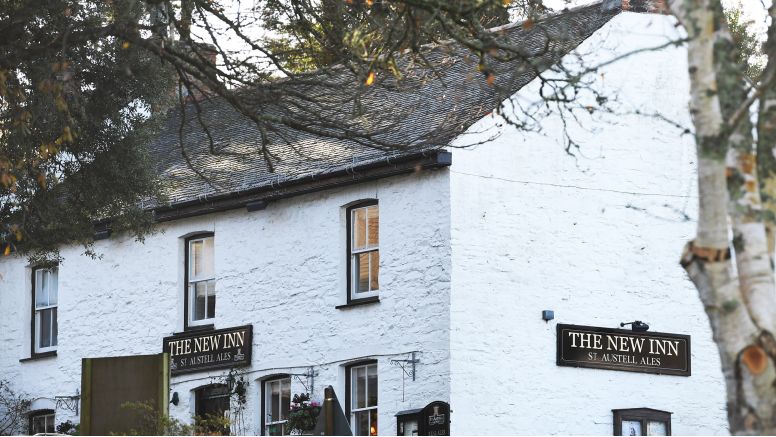
VERYAN GALLERY
An informal and relaxed, Veryan Gallery contains an ever-changing selection of original paintings, mainly by Cornish artists including Margaret Merry. The gallery also stocks a wide range of prints, ceramics, sculptures, pottery, silks, woodturnings, jewellery and cards. Click here to see The Nare’s recommended art galleries.
VERYAN AND PORTLOE STORES
Serving the local community as well as the tourists who frequent Veryan, this proper little village store also operates as a Post Office. Here one will find well-stocked shelves brimming with locally grown produce such as organic fruit and vegetables, alongside hot pasties, sausage rolls, artisan breads and a range of wines and spirits (produced by local breweries and vineyards).
